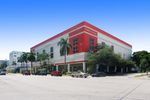-
Unit Size4'x5'Online price$ 48/mo
Unit Size4'x5'Online only price$ 48/moSmall 4'x5'- Ground Floor
- Climate controlled
- Inside Unit, Swing Door
- Locker
$ 48 /moBest Price Label+ one-time $29 admin feeHurry! -
Unit Size11'x10'Online price$ 537/mo
Unit Size11'x10'Online only price$ 537/moMedium 11'x10'- Ground Floor
- Climate controlled
- Inside Unit, Rollup Door
$ 537 /moBest Price Label+ one-time $29 admin fee1 unit left!
-
Unit Size5'x5'Online price$ 65/mo
Unit Size5'x5'Online only price$ 65/moSmall 5'x5'- Elevator access
- Climate controlled
- Inside Unit, Swing Door
- Locker
$ 65 /moBest Price Label+ one-time $29 admin feeHurry! -
Unit Size5'x15'Online price$ 147/mo
Unit Size5'x15'Online only price$ 147/moMedium 5'x15'- Elevator access
- Climate controlled
- Inside Unit, Swing Door
$ 147 /moBest Price Label+ one-time $29 admin feeHurry! -
Unit Size10'x15'Online price$ 458/mo
Unit Size10'x15'Online only price$ 458/moLarge 10'x15'- Elevator access
- Climate controlled
- Inside Unit, Swing Door
$ 458 /moBest Price Label+ one-time $29 admin fee1 unit left!
-
Unit Size5'x5'Online price$ 44/mo
Unit Size5'x5'Online only price$ 44/moSmall 5'x5'- Ground Floor
- Climate controlled
- Inside Unit, Swing Door
- Locker
$ 44 /moBest Price Label+ one-time $29 admin fee -
Unit Size10'x10'Online price$ 278/mo
Unit Size10'x10'Online only price$ 278/moMedium 10'x10'- Elevator access
- Climate controlled
- Inside Unit, Rollup Door
$ 278 /moBest Price Label+ one-time $29 admin fee2 units left! -
Unit Size10'x20'Online price$ 569/mo
Unit Size10'x20'Online only price$ 569/moLarge 10'x20'- Elevator access
- Climate controlled
- Inside Unit, Rollup Door
- Near Door or Elevator
$ 569 /moBest Price Label+ one-time $29 admin fee
-
Unit Size3'x3'Online price$ 31/mo
Unit Size3'x3'Online only price$ 31/moSmall 3'x3'- Ground Floor
- Climate controlled
- Inside Unit, Swing Door
- Locker
$ 31 /moBest Price Label+ one-time $29 admin fee1 unit left! -
Unit Size8'x10'Online price$ 203/mo
Unit Size8'x10'Online only price$ 203/moMedium 8'x10'- Elevator access
- Climate controlled
- Inside Unit, Rollup Door
- Near Door or Elevator
$ 203 /moBest Price Label+ one-time $29 admin fee1 unit left! -
Unit Size10'x15'Online price$ 300/mo
Unit Size10'x15'Online only price$ 300/moLarge 10'x15'- Elevator access
- Climate controlled
- Inside Unit, Rollup Door
$ 300 /moBest Price Label+ one-time $29 admin fee1 unit left!
-
Unit Size5'x5'Online price$ 60/mo
Unit Size5'x5'Online only price$ 60/moSmall 5'x5'- Elevator access
- Climate controlled
- Inside Unit, Swing Door
$ 60 /moBest Price Label+ one-time $29 admin fee1 unit left! -
Unit Size8'x10'Online price$ 110/mo
Unit Size8'x10'Online only price$ 110/moMedium 8'x10'- Elevator access
- Climate controlled
- Inside Unit, Swing Door
$ 110 /moBest Price Label+ one-time $29 admin fee1 unit left! -
Unit Size10'x15'Online price$ 205/mo
Unit Size10'x15'Online only price$ 205/moLarge 10'x15'- Elevator access
- Climate controlled
- Inside Unit, Rollup Door
- Near Door or Elevator
$ 205 /moBest Price Label+ one-time $29 admin fee1 unit left!
-
Unit Size4'x4'Online price$ 10/mo
Unit Size4'x4'Online only price$ 10/moSmall 4'x4'- Elevator access
- Climate controlled
- Inside Unit, Swing Door
- Locker
$ 10 /moBest Price Label+ one-time $29 admin fee -
Unit Size7'x10'Online price$ 81/mo
Unit Size7'x10'Online only price$ 81/moMedium 7'x10'- Elevator access
- Climate controlled
- Inside Unit, Swing Door
- Locker
$ 81 /moBest Price Label+ one-time $29 admin fee
-
Unit Size5'x4'Online price$ 42/mo
Unit Size5'x4'Online only price$ 42/moSmall 5'x4'- Elevator access
- Climate controlled
- Inside Unit, Rollup Door
$ 42 /moBest Price Label+ one-time $29 admin feeHurry! -
Unit Size10'x10'Online price$ 163/mo
Unit Size10'x10'Online only price$ 163/moMedium 10'x10'- Elevator access
- Climate controlled
- Inside Unit, Rollup Door
$ 163 /moBest Price Label+ one-time $29 admin feeHurry! -
Unit Size10'x15'Online price$ 226/mo
Unit Size10'x15'Online only price$ 226/moLarge 10'x15'- Elevator access
- Climate controlled
- Inside Unit, Rollup Door
$ 226 /moBest Price Label+ one-time $29 admin fee1 unit left!
-
Unit Size5'x5'Online price$ 32/mo
Unit Size5'x5'Online only price$ 32/moSmall 5'x5'- Elevator access
- Climate controlled
- Inside Unit, Swing Door
- Locker
$ 32 /moBest Price Label+ one-time $29 admin fee -
Unit Size10'x10'Online price$ 134/mo
Unit Size10'x10'Online only price$ 134/moMedium 10'x10'- Elevator access
- Climate controlled
- Inside Unit, Rollup Door
$ 134 /moBest Price Label+ one-time $29 admin feeHurry! -
Unit Size10'x15'Online price$ 202/mo
Unit Size10'x15'Online only price$ 202/moLarge 10'x15'- Elevator access
- Climate controlled
- Inside Unit, Rollup Door
$ 202 /moBest Price Label+ one-time $29 admin fee
-
Unit Size5'x5'Online price$ 26/mo
Unit Size5'x5'Online only price$ 26/moSmall 5'x5'- Elevator access
- Climate controlled
- Inside Unit, Swing Door
- Locker
$ 26 /moBest Price Label+ one-time $29 admin fee -
Unit Size10'x8'Online price$ 110/mo
Unit Size10'x8'Online only price$ 110/moMedium 10'x8'- Elevator access
- Climate controlled
- Inside Unit, Rollup Door
$ 110 /moBest Price Label+ one-time $29 admin fee
-
Unit Size3'x3'Online price$ 40/mo
Unit Size3'x3'Online only price$ 40/moSmall 3'x3'- Elevator access
- Climate controlled
- Inside Unit, Swing Door
$ 40 /moBest Price Label+ one-time $29 admin fee -
Unit Size7'x10'Online price$ 84/mo
Unit Size7'x10'Online only price$ 84/moMedium 7'x10'- Elevator access
- Climate controlled
- Inside Unit, Rollup Door
$ 84 /moBest Price Label+ one-time $29 admin feeHurry! -
Unit Size10'x15'Online price$ 203/mo
Unit Size10'x15'Online only price$ 203/moLarge 10'x15'- Elevator access
- Climate controlled
- Inside Unit, Rollup Door
- Near Door or Elevator
$ 203 /moBest Price Label+ one-time $29 admin fee1 unit left!
Storage Types in Miami Beach
- Boat Storage Units Near You in Miami Beach, FL
- Businesss Storage Units Near You in Miami Beach, FL
- Vehicle Storage Units Near You in Miami Beach, FL
- Climate Controlled Storage Units Near You in Miami Beach, FL
- RV Storage Units Near You in Miami Beach, FL
Other Storage Unit Options in Miami Beach, FL
- Cheapest Storage Units Near You in Miami Beach, FL
- Highest Rated Storage Units Near You in Miami Beach, FL
Storage Unit Sizes in Miami Beach
- 5x5 Storage Units Near You in Miami Beach, FL
- 5x10 Storage Units Near You in Miami Beach, FL
- 5x15 Storage Units Near You in Miami Beach, FL
- 10x10 Storage Units Near You in Miami Beach, FL
- 10x15 Storage Units Near You in Miami Beach, FL
- 10x20 Storage Units Near You in Miami Beach, FL
- 10x25 Storage Units Near You in Miami Beach, FL
- 10x30 Storage Units Near You in Miami Beach, FL
Cheap Storage Units Near You in Miami Beach, FL
Public Storage makes it easy to find affordable self-storage in Miami Beach, FL. With clean, convenient storage unit locations across the area, you can organize, declutter, and free up space at home or work. Whether you’re planning a move or clearing out clutter, our storage units are built to fit your needs.
Climate Control
Climate-controlled storage units help reduce the effects of heat, humidity, and cold while keeping visits comfortable year-round. It’s an ideal option for storing wood furniture, leather, fabrics, and other items that do best in consistent conditions.
Drive-Up Access
Storage units with drive-up access give you ground-level convenience for quick drop-offs and pick-ups. Pull up to your unit and store or retrieve boxes, tools, or equipment without hauling them indoors.
Car/Vehicle Storage
Public Storage makes car storage simple with covered, uncovered, and enclosed unit options. It’s an easy way to free up space at home while keeping your vehicle close and ready when you need it.
Boat Storage
Stash canoes, kayaks, jet skis, or trailered boats between trips. With ground-level and covered boat storage unit options available, you can clear driveway space, store your watercraft, and have it ready for your next outing.
RV Storage
Create space at home and keep your RV ready for the road with open or covered parking storage unit options. Enclosed drive-up storage units are also available for smaller trailers and campers, making it easy to store your vehicle.
24/7 Access
Our 24/7 Access upgrade lets you enter your storage space whenever you need to—day or night. With bright lighting, personalized gate codes, and around-the-clock support, it’s storage that works around your schedule, not the other way around.
Clean Storage Facilities
Public Storage facilities are cleaned and maintained regularly, so every visit feels comfortable and organized. Hallways, elevators, and loading areas are kept tidy to make moving in and out simple.
Business Storage
Running a business takes space, and Public Storage makes it easy to find it. Our flexible, month-to-month rentals help you store inventory, organize supplies, or manage equipment without the cost of extra office space.
Trusted Storage Facilities
Public Storage facilities feature keypad entry, gated access, and bright, well-lit surroundings designed for everyday convenience.
Trusted Nationwide Since 1972
For more than 50 years, Public Storage has been part of life’s biggest moves and everyday moments. With thousands of locations nationwide, we offer clean, convenient spaces to store, organize, and declutter on your terms. Wherever you are, we make it easy to make room for what’s next.
About Miami Beach
Miami Beach is one of Florida's most well-known resort cities, drawing thousands of tourists every year with its sandy beaches and vibrant culture. The city is located on a collection of barrier reef islands, separated from Miami by Biscayne Bay. Miami Beach is popularly known as the home of the largest collection of Art Deco architecture in the world, with hundreds of Art Deco buildings preserved in its Art Deco Historic District.
The History of Miami Beach
The land that is now Miami Beach was purchased by Henry and Charles Lum in 1870. The U.S. Life-Saving Service was the first to construct a building in the area, a small structure intended to provide life-saving shelter and necessities for potential shipwreck victims. In the 1880s, a pair of entrepreneurs planted a large coconut plantation. The plantation eventually failed and was replaced by extensive avocado tree groves, an effort led by agriculturist John S. Collins. After some time, the Collins family realized that the land had excellent potential as a vacation destination, especially as the city of Miami flourished across the bay.
In 1913, the first bridge from Miami to Miami Beach was built, providing the connection the city needed to start a major wave of residential development. The town of Miami Beach was incorporated in 1915 and then received official city status in 1917. During the 1920s, it continued to be a major tourist destination as a number of large hotels and resorts were constructed. Nationwide economic growth after World War II brought many new residents to Miami Beach, and it also became a popular destination for Cuban refugees in the second half of the 20th century. These population booms helped shape Miami Beach into the vibrant and diverse community that it's known as today.
Living in Miami Beach
Miami Beach thrives on tourism, and because of this there are a number of tourist areas and entertainment options. The city offers beautiful beaches, parks, hotels and attractions for families or individuals to enjoy. Even as a full-time resident, you'll have easy access to vacation-style experiences right in your own backyard.
Lincoln Road is a popular district in Miami Beach, famous for its world-class dining, shopping and art galleries. Rollerblading and bicycling along the east-west road is also a popular pastime in the area. You'll find a thriving arts and culture scene in the city, including the world-famous New World Symphony. Art Basel Miami Beach is one of the country's largest art shows, exhibiting a variety of artists throughout the Art Deco district.
Of course, Miami Beach is best known for its miles of sandy beaches, bordering both sides of the city. Because the area is very popular with tourists, some of the beaches can become fairly crowded. However, there are a number of smaller beaches that you can visit to avoid the crowds.
Miami Beach Schools
Schools in Miami Beach are part of the Miami-Dade County Public Schools. The district operates several traditional schools in the area, but also provides the option of many different magnet campuses.
Resources for Moving to Miami Beach
As you prepare to move to Miami Beach, you can use the following resources to make the process as easy as possible:
- Utilities: The city of Miami Beach manages water and sewer services throughout the city. The city's main power provider is Florida Power & Light (FPL).
- Garbage and Recycling: Trash will be collected twice a week. Recycling is required by law, though you can choose to have your recyclables collected either by a private company or the city.
- Transportation: In Miami Beach, you can take advantage of the citywide free trolley system.
Miami Beach Housing
Because of its desirable beachfront location, Miami Beach is very expensive when it comes to housing. However, prices have been declining in recent years, which is good news if you're hoping to find something budget-friendly. The housing market has a range of options including single-family homes and condominiums, and there are also a variety of rental properties to consider.
Self Storage FAQs
Outdoor Drive-Up Units: Ground-level units you can drive up to for quick loading and unloading.
Climate-Controlled Units: Designed to help maintain more consistent temperature and humidity levels. Availability varies by location.
Vehicle Storage: Options may include parking spaces or enclosed units for cars or small trailers.
RV or Boat Storage: Typically offered as open or covered parking spaces at select locations.
Business Storage: Units suited for storing inventory, equipment, or supplies without the cost of commercial property.
Features and availability vary by facility.
• Gated access with individualized entry codes
• Bright lighting throughout the property
• Onsite staff during office hours
• Video surveillance
• Well-maintained fencing and facility grounds
• Storage unit locks available for purchase
Features can vary widely by location, so reviewing your facility's offerings is recommended.
• Drive-up units for fast loading
• Indoor units for hallway access and comfortable entry
• 24/7 access where available
• Month-to-month rentals
• Locations near home, work, or major roads
• Online account management and payment options















